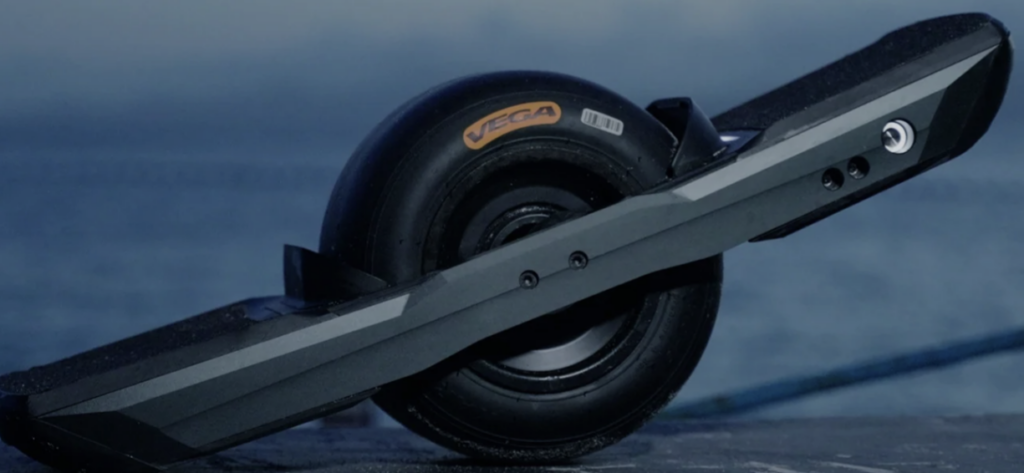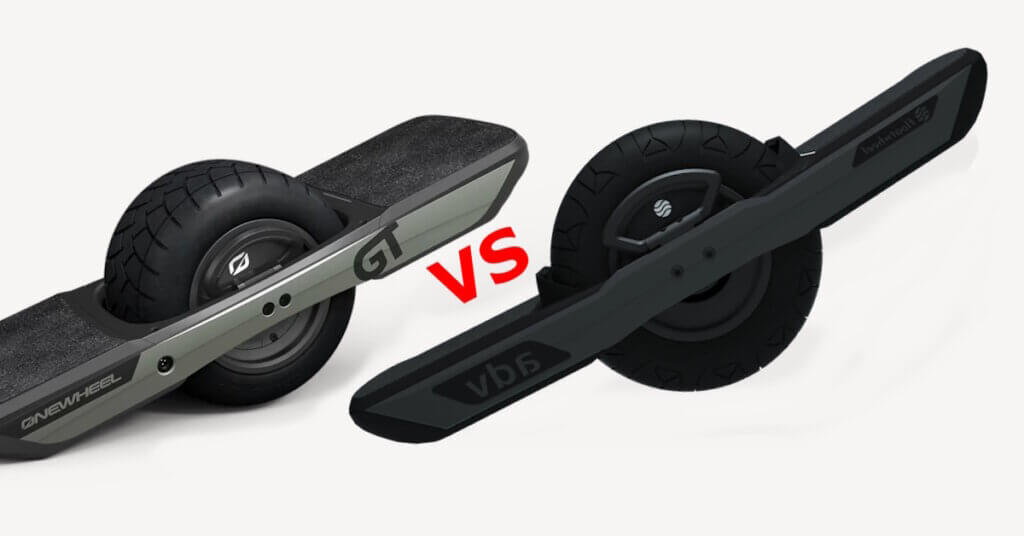The Floatwheel Adv is one of the contenders for the Onewheel GT. On paper this a better value for your money and better specced than the GT, still there are some things you need to know before buying. The article below will cover some of the key points that separate these two one-wheeled boards from each other.
In short, the Flotwheel Adv has some significant upgrades in voltage, power, and torque compared to the Onewheel GT. The GT has been the mark in the one-wheel board market. The big difference is that the GT is more for anyone who wants a board out of the box to ride one, while the Floatwheel Adv is focused on the DIY and tinkering community.
Below is a list of key features and specification breakdown between the two models.
Specifications
The main performance differences are in the powertrain and battery design, having a voltage of 84V to the 75V of the GT. This results in the Floatwheel having more power, torque, and top speed compared to the GT. It also uses a better motor with 6hp compared to the 3hp.
| Specification | Floatwheel Adv | Onewheel GT |
|---|---|---|
| Price | $1,599 | $2,300 |
| Motor | 6hp CannonCore | 3hp 750W Hypercore hub motor |
| Battery | DG-01/DG-40 cell (20S2P) | NMC: 21700 |
| Voltage | 84V | 75V |
| Sensor | Custom Floatwheel | Solid state MEMS 6-DOF |
| Tire | 11.5 x 6.5-6.5in Onewheel | 11.5 x 6.5-6.5in Onewheel |
| Max lean angle: | >30 degrees | >30 degrees |
| Size | 9.5in x 11in x 29in | |
| Weight | 35lbs | 35lbs |
| Range | 34 miles (55km) | 20-32 miles (32-52km) |
| Top Speed | 22mph (35km/h) | 20mph (32km/h) |
| Recharge time | 210min | 200min |
Top Speed
The 22mph increase is really welcome but not a real difference compared to the 20mph of the GT. It will not make it
Features
The Onewheel GT is an evolution of the Onewheel hand and has the Heptiz Buzz features allowing for a safer ride. When it comes to customizing the riding experience hands down, the Floatwheel will with its VESC have the greatest controls of the performance. On the other hand, with the released Custom Shaping 3.0 the Onewheel GT has taken a leap and added more ability to customize the ride than before.
Hands down, the Onewheel GT is the easiest board to use. There is no need to build the board when it comes to the Adv and all the SW and upgrades are handled by Future Motion or the app.
Both boards have the option to use either a treaded tire or a slick option. The Floatwheel has a more Floatlife type of tire compared to the ruffer-treated one of the GT. The biggest complaint of the Gts treaded is that the compound is too stiff and not comfortable to ride on. Nowadays there is an option to buy the Onewheel GT Performance tire, which will set you back an additional $125.

Waterproof
Both boards are not waterproof but water resistant and the GT uses the enclosure design that was pioneered with the Onewheel Pint to increase the waterproofness of the board.
The Floatwheel is built around the same principle and will also have a good weather performance. Keep in mind that both board is only water-resistant. It´s not recommended to ride in the rain as there is always a risk of water leaking into the controller or battery compartment.
Price
Floatwheel Adv $1,599 vs Onewheel GT $2,300
The Floatwheel is cheaper for a reason, you will need to assemble the board yourself, (even if this is quite an easy task and anyone should be able to do it). It’s also cheaper as they don’t need to have the same budget as a large organization and therefore can have a lower price.
Buying the wheel is a different story. The Onewheel GT can be bought from Future Motion directly or any certified 3rd party retailer around the world, making accessibility and the possibility to test the board easier.
The Floathweel on the other hand needs to be bought from the Floatwheels homepage and you can only pay in crypto currency. This is a result of getting around the Patents that Future Motion Inc. holds around the Onewheel concept. *FallmanTech does not take any stance around this and this is only for information
Conclusion
In conclusion, the Floatwheel Adv and Onewheel GT are two formidable contenders in the world of one-wheeled boards, each offering unique advantages and catering to different preferences. The Floatwheel Adv excels in terms of raw power, boasting a higher voltage, more torque, and a top speed of 22mph, making it an appealing choice for those seeking a thrilling ride. With its 6hp CannonCore motor and a reasonable price tag of $1,599, it’s a value-packed option that offers a compelling alternative to the Onewheel GT.
On the other hand, the Onewheel GT, with a price of $2,300, is more tailored for users who desire a ready-to-ride experience with its Heptiz Buzz features, prioritizing safety and convenience. It provides a top speed of 20mph, which, while slightly lower than the Floatwheel Adv, is still more than capable of delivering an exciting ride.
Customization options also set these two boards apart. The Floatwheel Adv, with its VESC, offers extensive control over performance customization, making it a favorite among DIY and tinkering enthusiasts. Meanwhile, the Onewheel GT has introduced Custom Shaping 3.0, allowing riders to tailor their experience to a greater extent than ever before.
Ease of use is where the Onewheel GT truly shines. Future Motion and its app handle all software updates and upgrades, making it hassle-free for riders. On the other hand, the Floatwheel Adv, while offering superior performance, requires assembly and software adjustments by the user.
Both boards are water-resistant, although not waterproof, with the Onewheel GT incorporating design features to enhance water resistance. It’s crucial to keep in mind that neither board is suitable for riding in the rain, as moisture could potentially damage the controller or battery compartment.
Price-wise, the Floatwheel Adv’s lower cost of $1,599 reflects its DIY nature and leaner organizational structure, while the Onewheel GT, at $2,300, offers the convenience of direct purchase and wider accessibility through certified retailers.
In the end, the choice between the Floatwheel Adv and Onewheel GT ultimately depends on your priorities and riding preferences. Whether you value high-performance potential, customization, ease of use, or budget considerations, both boards have their strengths and cater to different segments of the one-wheeled board market.


